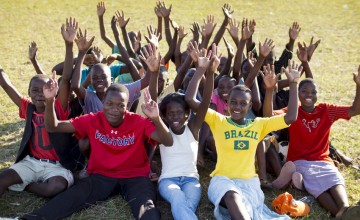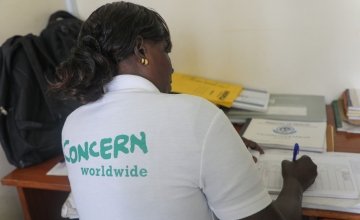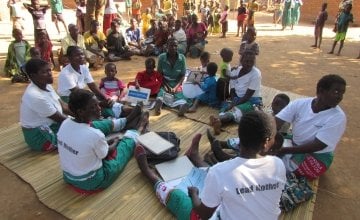
Read our 2023 annual report

Knowledge Hub
Communities come together on World AIDS Day 2019

Having claimed more than 32 million lives since the beginning of the epidemic in the early 1980s, HIV continues to be a major global issue.
World AIDS Day takes place on Sunday 1 December, with the theme of ‘Communities Make The Difference’ putting the focus on those who are best placed to support people living with HIV across the globe.
Approximately 37.9m people were living with HIV worldwide at the end of 2018, while a further 8.1m people with HIV had never been tested and were unaware that they were living with the condition.
Due to developments in medical treatment, HIV infection has now become a manageable chronic health condition, enabling people to live long and healthy lives as a result of effective diagnosis, treatment and care.
HIV in developing countries

In Ireland, 489 new cases of HIV have been reported in 2019 to date. Treatment is available for those living with HIV here but this is not always the case in developing countries across the world.
Globally, in 2018, 38% of adults and 46% of children living with HIV were not receiving lifelong antiretroviral therapy (ART).
Lack of access to ART is affecting the extreme poor and most marginalised groups. Sadly, due to gaps in HIV services, 770,000 people died from HIV-related illnesses and 1.7m people became newly infected in 2018.
There is still no cure for HIV infection.
The good news is that HIV medication is proven to work for those who have access to it and between 2000 and 2018, new infections fell by 37% globally and HIV-related deaths were down by 45%.
Concern’s response in different countries
More than 13.6m lives have been saved by ART, and Concern is working with partners and local communities to continue to support the response to both HIV and AIDS.
In Bangladesh, Burundi and in Sudan, our teams have responded through targeted awareness raising, messaging, outreach sessions and HIV prevention education.
HIV is addressed in the Liberia Agriculture programme and in collaboration with the National AIDS Commission on World AIDS Day events.
In the Burundi graduation from poverty programme, 14 community outreach sessions on HIV, family planning, and family related laws were conducted, and linkages were established with service providers in health centres. In our youth livelihoods programme, training sessions included HIV and AIDS and family planning topics.
In Sudan, we are responding through our emergency response programme, with awareness raising, messaging and HIV prevention education. This is done through one-to-one consultations, community dialogues and institutional level capacity building. The response, funded by the EU and Irish Aid, is now countrywide within all programmes.
In Ethiopia, national adult HIV prevalence now stands at 1.0%, so ongoing attention is warranted. This is particularly urgent in view of the youth and gender vulnerabilities in-country, and for the protection of women.

Sonke Gender Justice
Working in partnership with Sonke Gender Justice, Concern Kenya’s HIV response takes place in the Governance, Advocacy and Education programmes. In Nairobi, the monitoring report shows that 23.0% girls and 41.1% boys aged 10 to 14 reported that they engaged in high-risk behaviour and only 60.1% girls and 60.5% boys in the age group can correctly identify two ways of preventing sexual transmission of HIV. HIV education is essential.
The Kenya Child Survival Programme evaluation reported that the Community Birth Referral Agents (formerly known as Traditional Birth Attendants) are now imparting HIV information.
The Concern Malawi team with international organisations, Grassroots Soccer and SCF, is focusing on girls and supporting them to reduce their risk and vulnerability through life skills.
Malawi has the highest HIV adult prevalence among current Concern operational countries, at 9.2%.
High HIV risk and vulnerability, especially for women and young people persists, in South Sudan, a country with an adult prevalence rate of 2.5%.
Communities all over the world continue to show solidarity with those living with HIV and also contribute to the HIV response, and the sustainable development goal to end the AIDS epidemic by 2030, in many different ways.
Find out more about our work in health and nutrition below.





